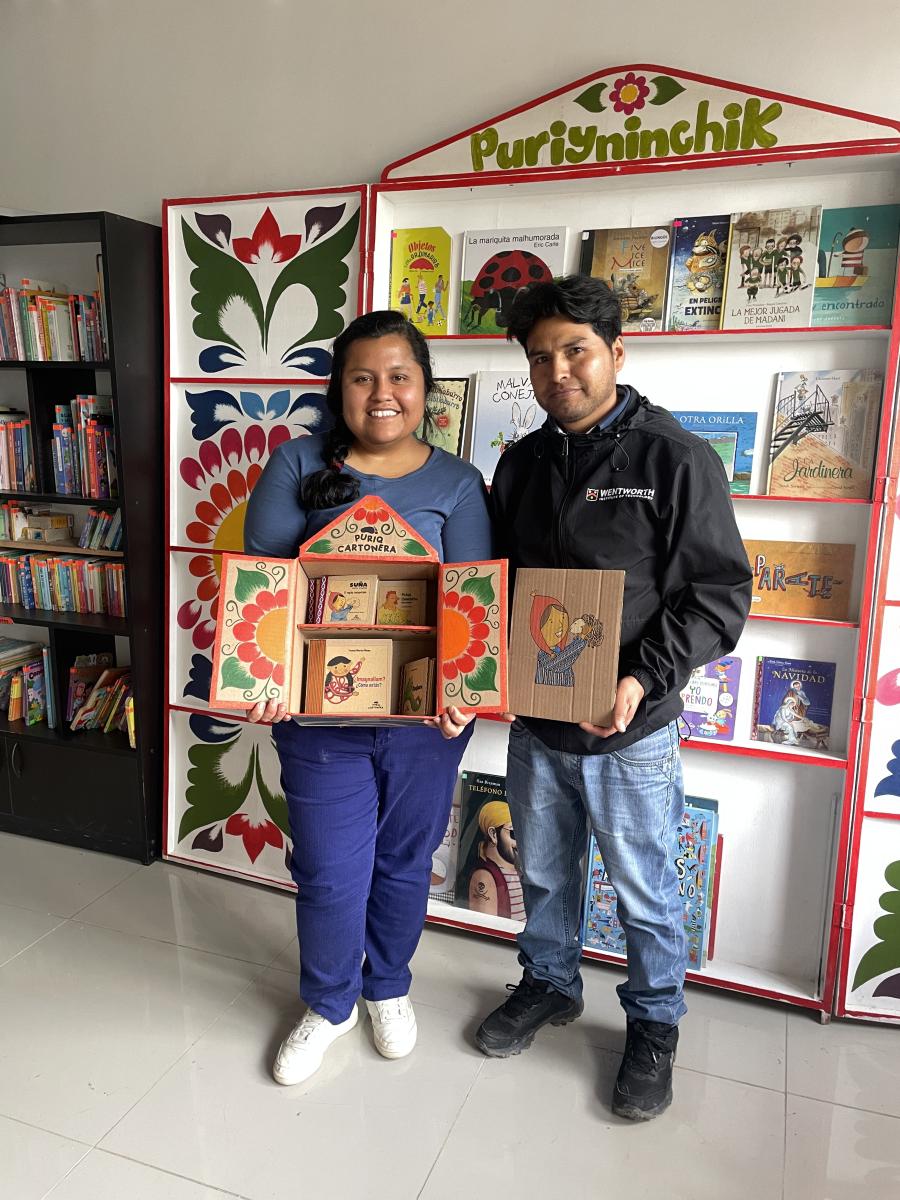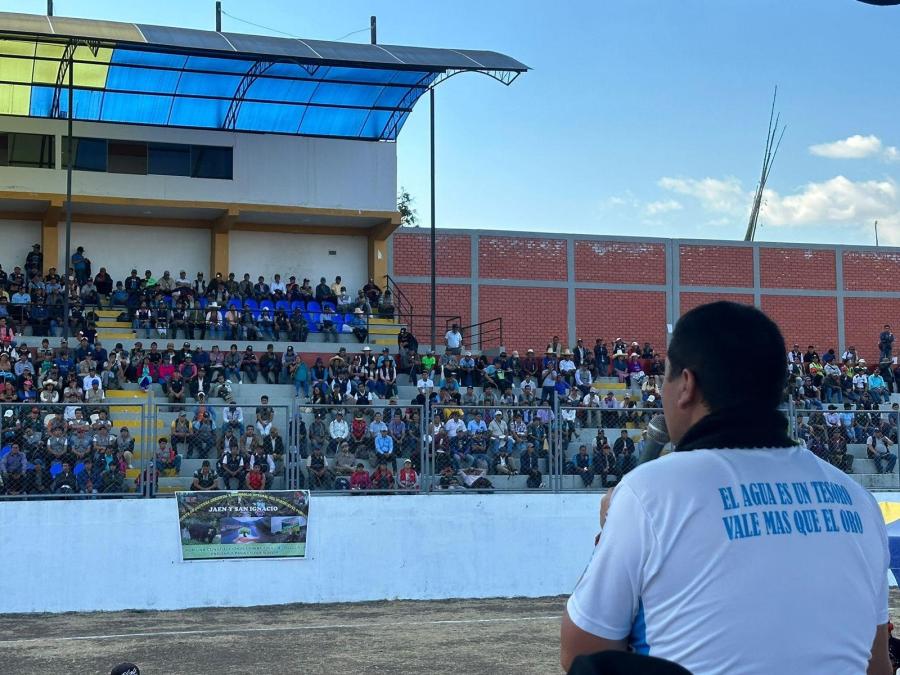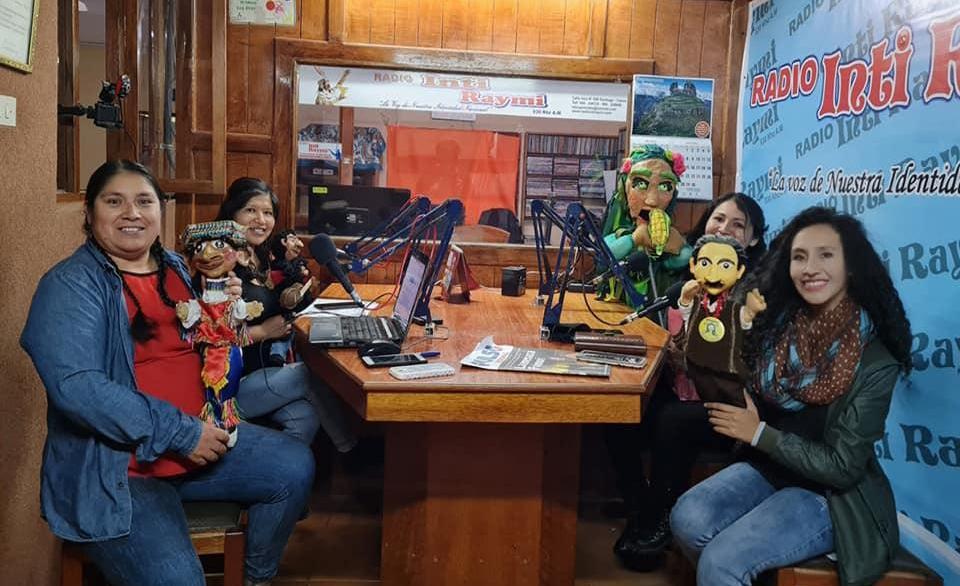
By Alejandrina Calanche Monge (Ch’umpiwillca)
The messages that the radio shares with us animate the spirit and inspire action of human magic. They say: “We are going to rescue our cultural identities, we are the heirs of a great culture, a Pomacanchino proud of his race and his origin greets you…Go ahead and fight against the cultures that want to overshadow us. Panaykuna sumaqmi rimayninchis (in Quechua: Sisters, our speech is beautiful). Amazonasmaya kumpamjamui (in Awajun: I send greetings from the Amazon),” Radio Inti Raymi’s Rimayninchis Program.
Knowing ourselves to be who we are, where we come from, what thread we are interwoven with, and how we respond in community to our peers, is the timeline of our cultural resilience as Peoples who resist disappearing. Radio is a key instrument for Indigenous Peoples, this is how the threads have also expanded in the Andes and the Amazon in the Cusco region of Peru. Of many, we are now, "Rimayninchis - Our Voices.” We are one of the veteran, multilingual radio shows which for over 21 years have told stories of life, in our native languages. We talk, we sing, we laugh, we cry, that's the way radio is.
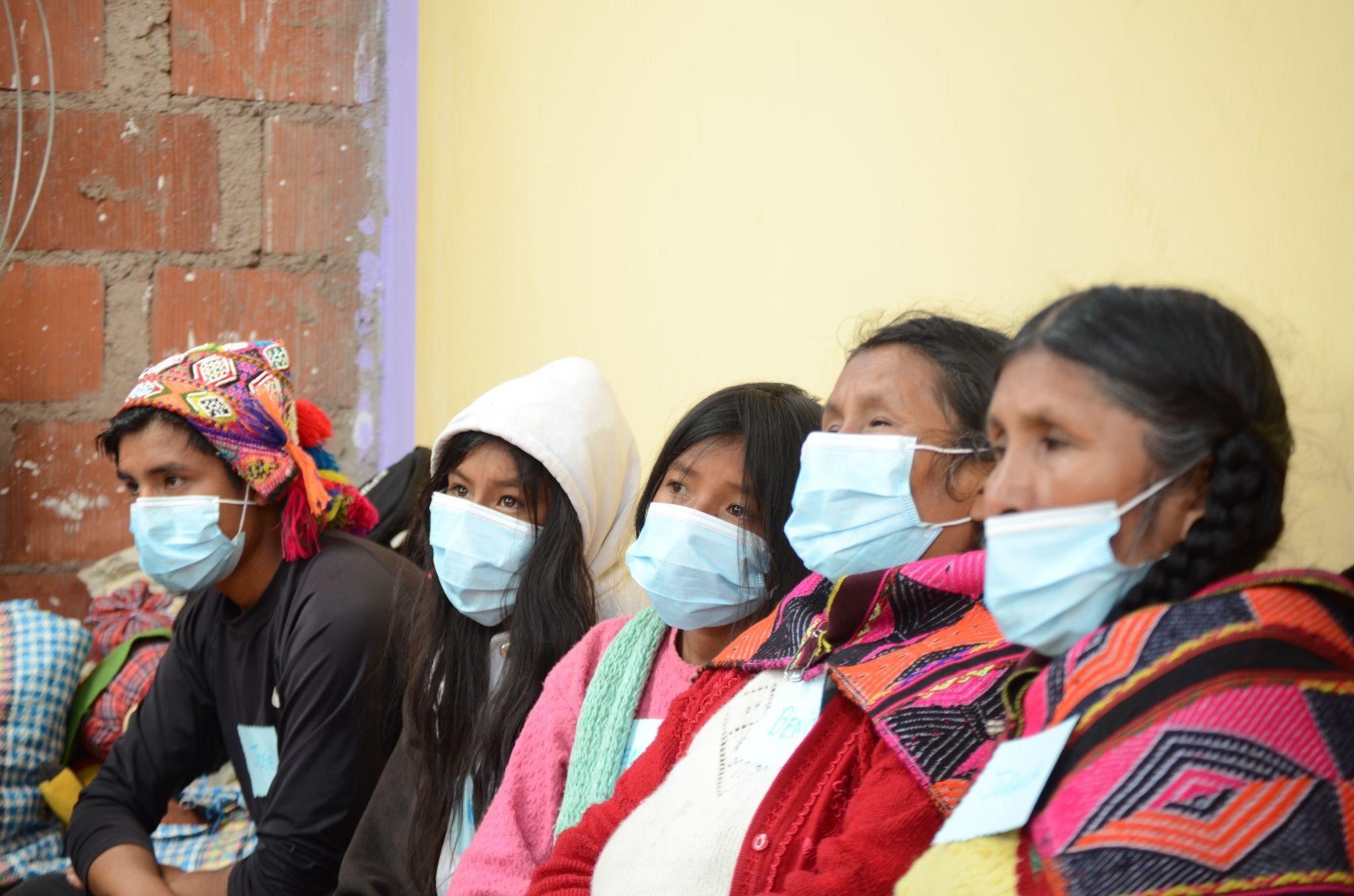
In the midst of the COVID-19 pandemic, when uncertainty, fear, and death stalked us and the news was sad, “Rimayninchis - Our Voices” received good news about becoming a grant partner of Cultural Survival's Indigenous Community Media Fund. To our joy, it was the first time we received a grant from this institution for the co-production of 43 radio programs, 10 spots, and 5 socio-dramas in Spanish and Indigenous languages. The topics of the programs included the United Nations Declaration on the Rights of Indigenous Peoples (UNDRIP), decolonized history of Indigenous Peoples, protection of lands and resources, rights of Indigenous women, Free, Prior and Informed Consent, cultural and ancestral heritage, relevant national legislation that affects the rights of Indigenous Peoples, literacy in our mother tongues and other related topics.
When Indigenous people migrate to cities, they generally lose their identity, are culturally and socially assimilated. For this reason, we target our radio production to the migrant Indigenous families of the Q'eros Nation, in the Paucartambo province of Cusco. During the grant year, we produced radio programs in our Indigenous languages, with Indigenous actors from Quechua, Kichua, Aymara, Harakbut, Shipibo-Conibo, Awajun, Matsigenka, Ashaninka Peoples. They had a space to disseminate their cultural manifestations and talk about their rights and responsibilities. Fortunato Flores Chura (Q'eros), community leader, tells us in his mother tongue Quechua Q'eros, “The Peruvian State recognizes us as Indigenous Peoples, Q'eros Nation, from the province of Paucartambo, Cusco, but is far from improving our living conditions. They still do not understand the importance of our culture. Our lands are being invaded by mining exploiters and our children must migrate to the cities to receive a quality education.”
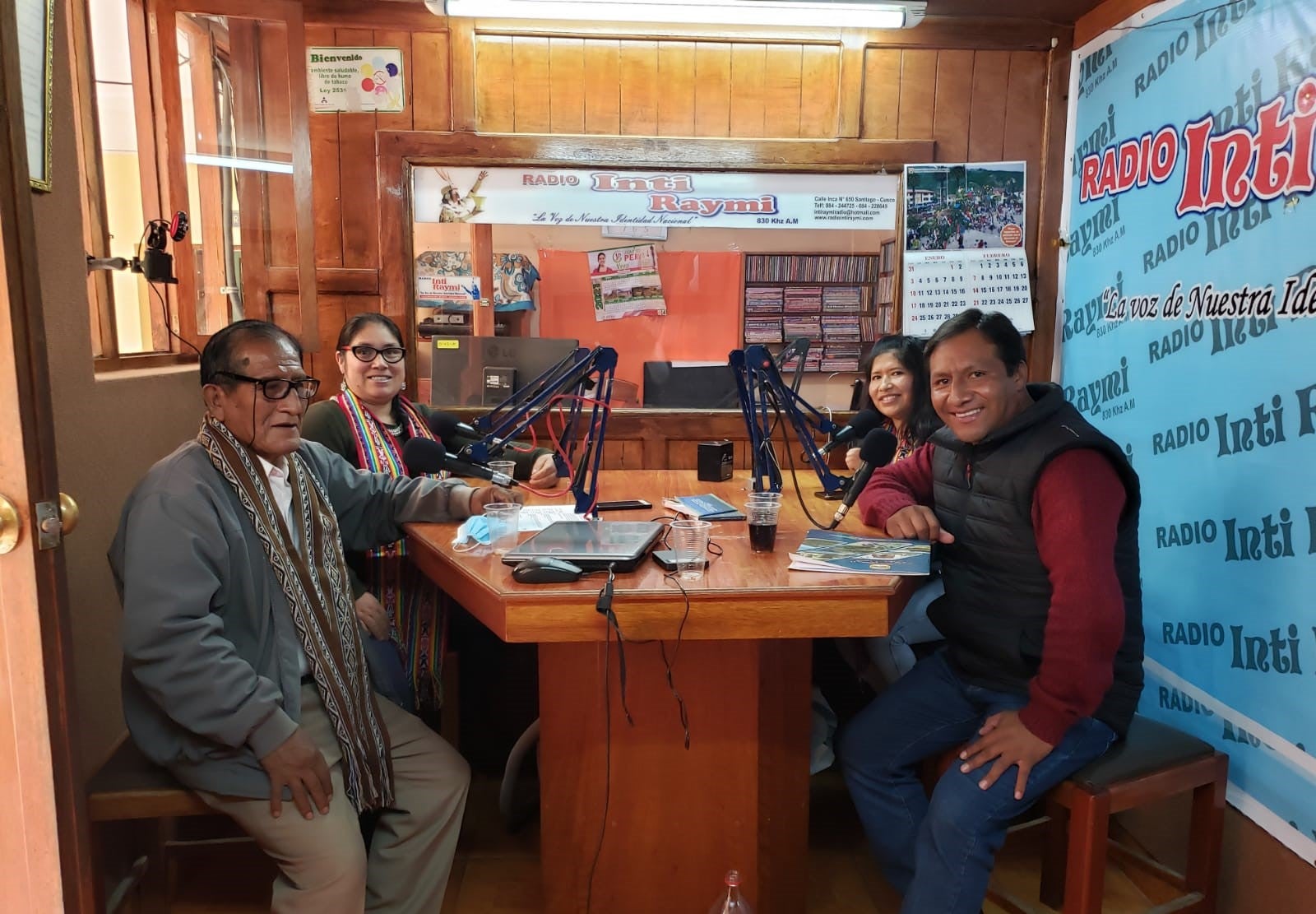
“We learned about the rights of the Indigenous communities, also about the territorial rights that we have in the communities. We did not have that information but with what we have learned on this subject, we now have knowledge. We must know how to maintain our Q'eros culture, traditions, and customs,” says Matilda Machaca Apaza (Q'eros), from Q'eros.
During the COVID-19 pandemic, the rate of infection, deaths from the virus, and compliance with security protocols have prevented many radio actors, journalists, and personnel from being present in the radio booth. However, telephones have played a crucial role in our communications. Indigenous people have talked, interviewed, told life stories, making use of this technology and overcoming the distances to allow us to interweave speaking about ourselves and share about the experiences we are living in these times.
We have collected testimonies and conducted interviews with women from different Indigenous Peoples of Peru. This includes two 11- and 12-year-old Quechua and Ashaninka school reporters from the Andes and Cusco Amazon, the direct participation of women, men, and adolescents from Q'eros migrant families in the creation of dialogues for radio programs and socio-dramas. This participation of women is a significant contribution to the process of empowerment of Indigenous actors. We are the protagonists of change in our own communities.
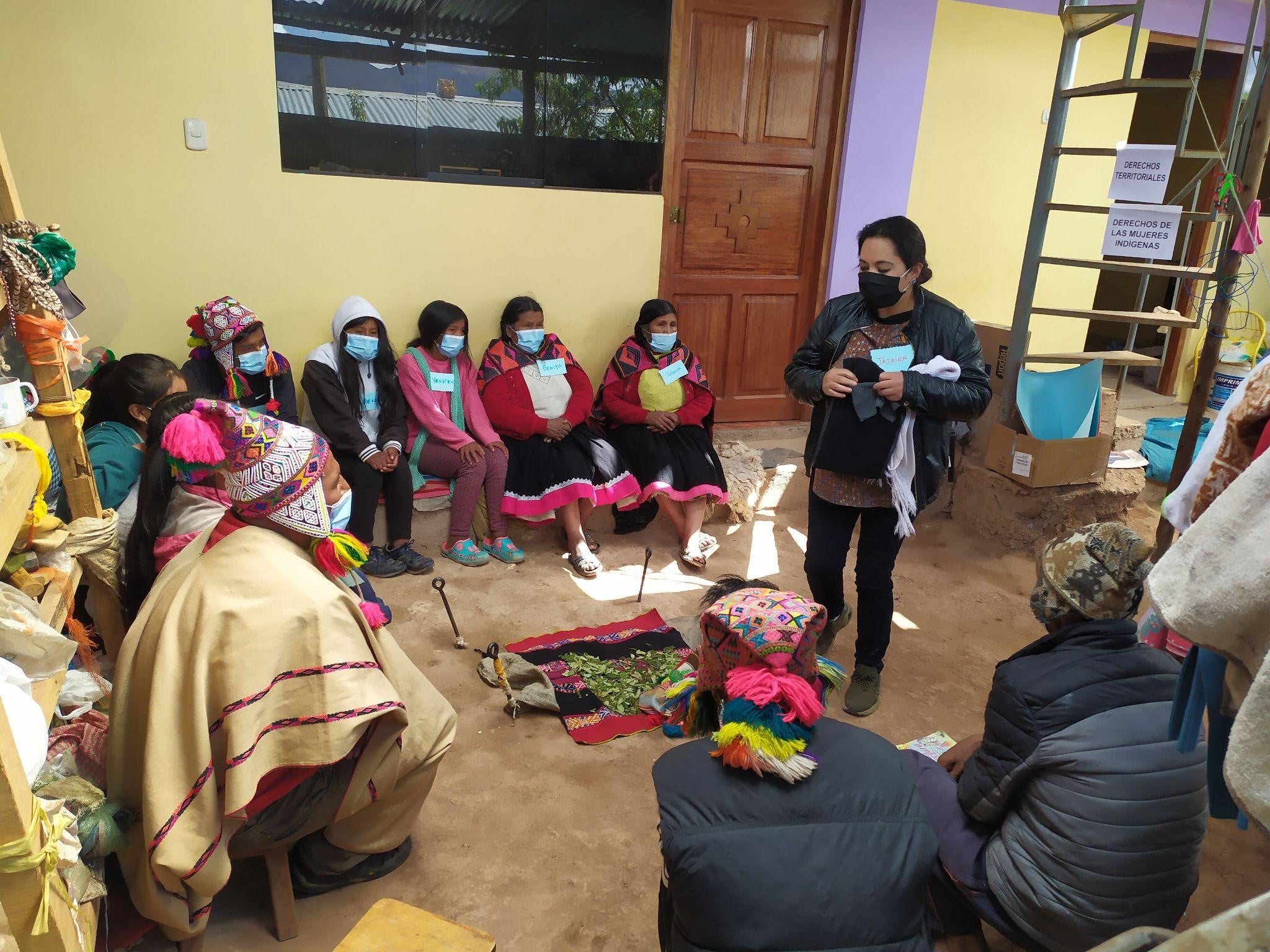
Understanding each other in different Indigenous languages, with the help of Spanish, has allowed us to speak with identity, face, and our own names. We speak about our individual and collective rights, responsibilities towards our Peoples, sharing who we are, our social, spiritual values and principles, and our cultural, political, social, economic, and religious beliefs based on our relationships with Mother Earth and the respect that we owe her in our life passage.
“Many times we do not know about certain subjects, so for my people, it is hot information. Listening to something that we do daily on the radio is like reliving those moments. It is very interesting and also very striking at the same time because our cultures are very different from others,” shared José Ignacio Quispe Machaca, 16 years old.
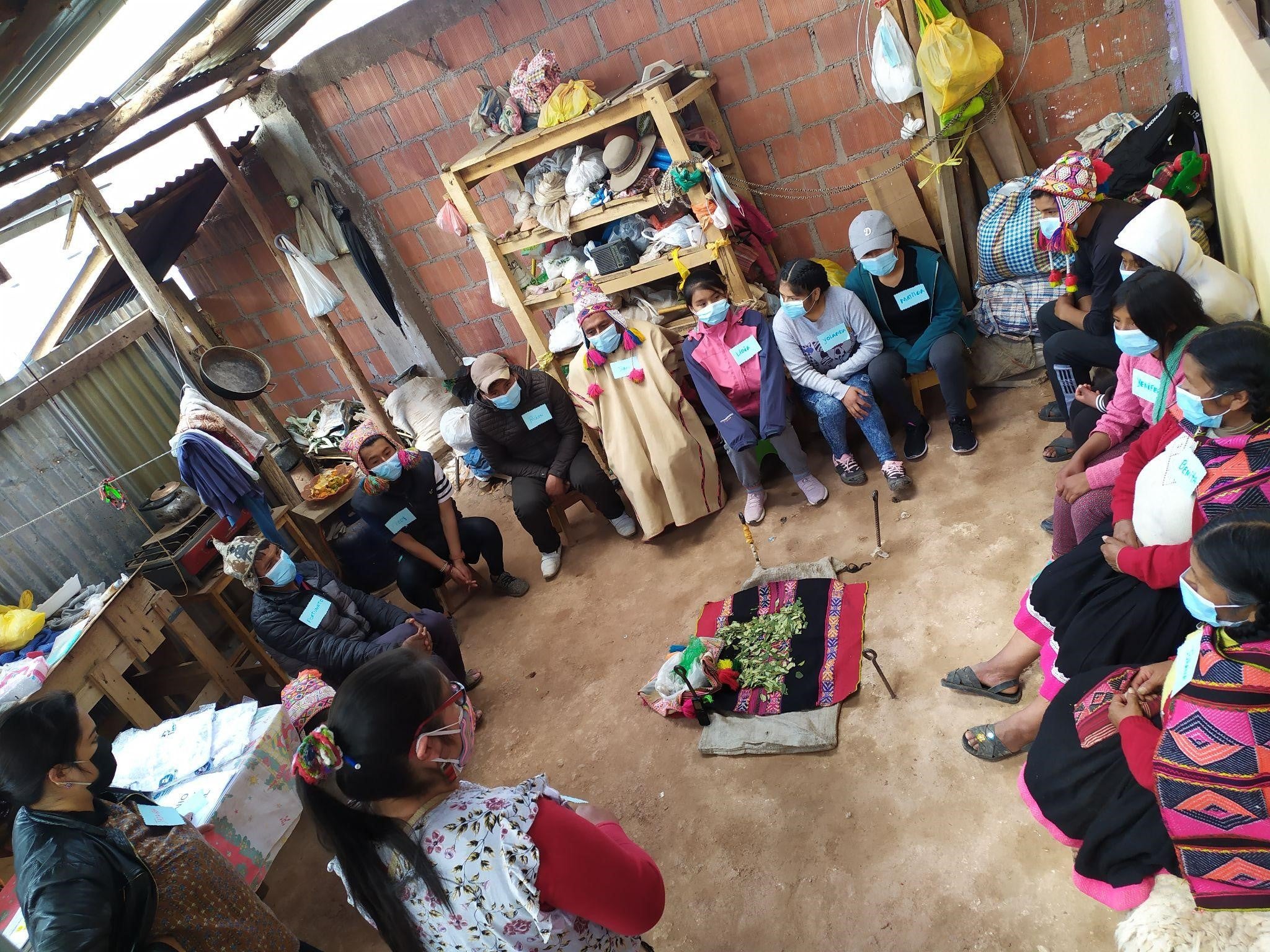
“Rimayninchis - Nuestro Voces” is a multilingual radio project that for 21 years has rooted its continuity on principles of life that our ancestors, the Inka, have passed down to us. This includes Ayni (generous reciprocity) and Mink'a (collective action for the common good). This is how we continue to speak about ourselves. The support of our work by other institutions is fundamental, in the human sense, that we understand the radio as a means of interaction of Peoples, their visibility, and public action for the good of future generations. We need to build power in Indigenous and Native Peoples. That power enables us to decide how we want to live, what quality of life we give to our children, and what society we want to leave to the qhepa hamuq (future generations).
Yolanda Flores Quispe shares her experience, “It was a beautiful experience to create these programs, something I had never done before. Personally, I was able to express myself. Women should not feel repressed by the ideas of the past because that is transmitted from generation to generation. We are going to take it further because [this thinking] does not allow us to develop much. We have to protect our lands and what is ours…”
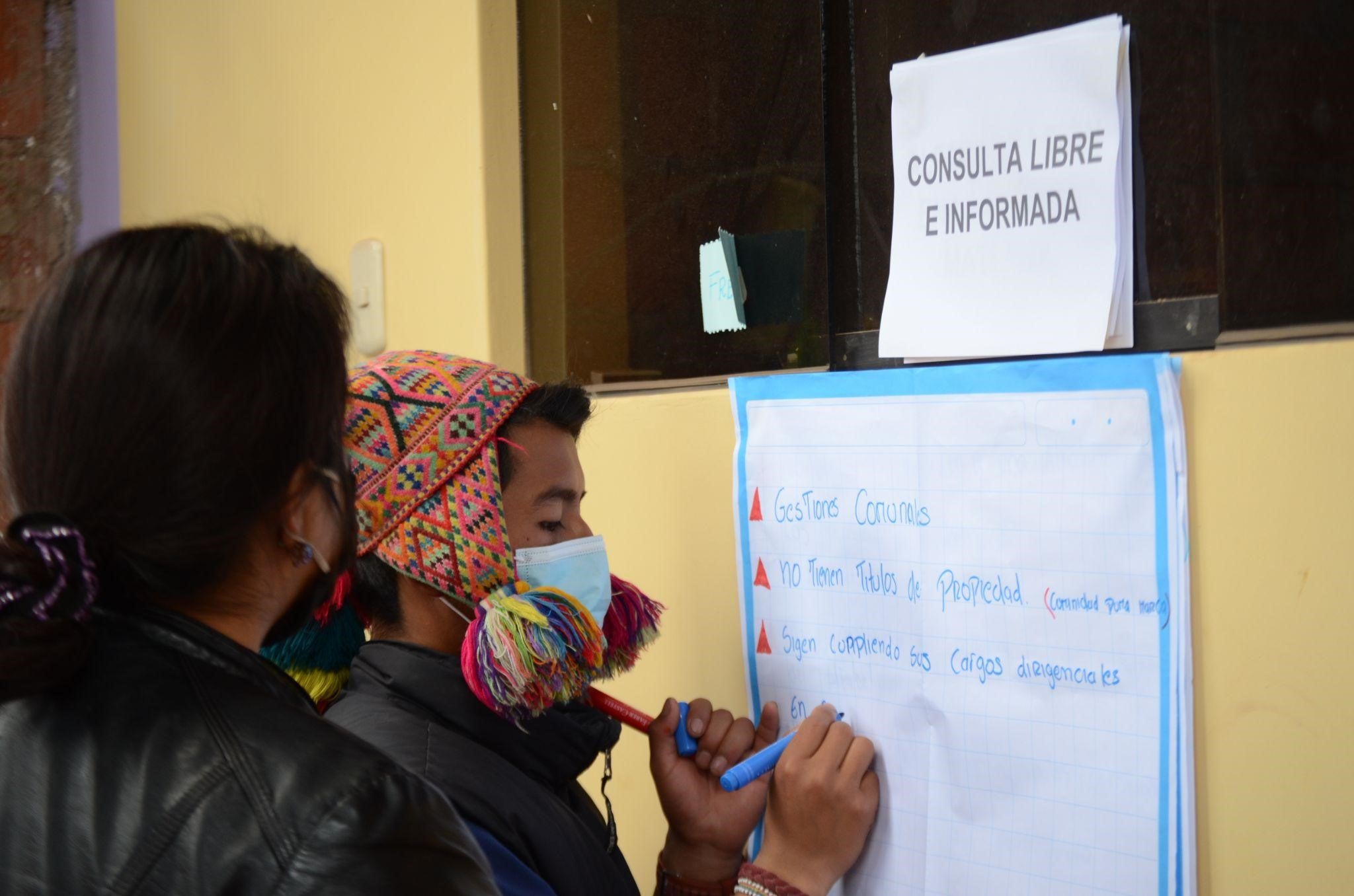
Rimayninchis received a grant from Cultural Survival's Indigenous Community Media Fund in 2020. The Indigenous Community Media Fund provides opportunities for international indigenous radio stations to strengthen their infrastructure and broadcast systems and creates training opportunities for journalism, broadcasting, audio editing, technical skills and more for radio journalists from indigenous communities around the world. In 2021, the Indigenous Community Media Fund supported 57 media projects in 23 countries, totaling $ 340,500.
-- Alejandrina Calanche Monge (Ch’umpiwillca) is from Cusco, Peru. She studied at the National University San Antonio Abad del Cusco, Professional School of Social Communication and Languages. Since 2000, she has produced the multilingual radio program, "Rimayninchis - Nuestro Voces", a platform that has served to make Indigenous Peoples, campesino communities, and rural organizations visible and listen to each other, with identity, face and in their own names.
